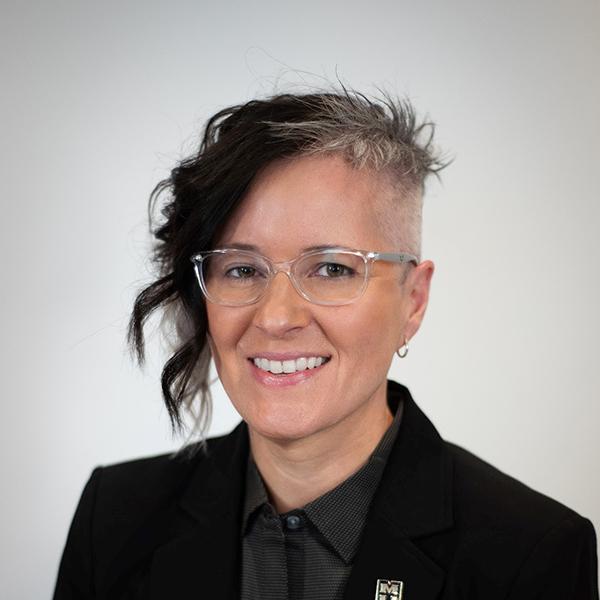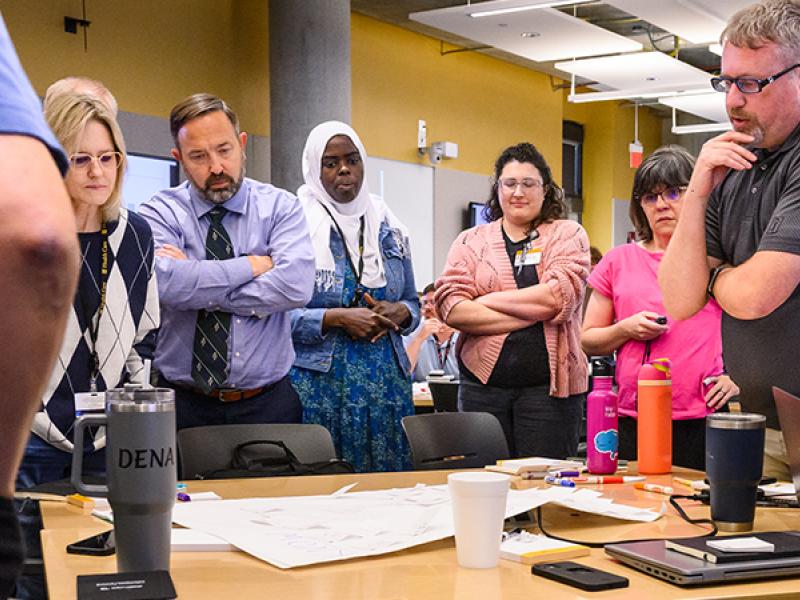Our mission in the Office of Well-Being is to save and improve the lives of health care workers throughout our academic health system. We engage with departments, teams, and individuals to advance a culture of wellness at all levels of the organization.
Learn How
Our Services
Individual Support
Access to confidential, timely, quality mental health care
Our licensed clinicians will work with you to find the mental health support that's right for you, within the MUHC system or through referral to a community resource.
Your privacy is important to us. Clinical records for clients of the Office of Well-Being are kept in a HIPAA-compliant software application that is not connected to PowerChart.
Individual well-being plan development
Being prepared for life's inevitable ups and downs can help prevent burnout and keep your well-being on track. We can help you create a personal well-being plan to give you the tools you need to thrive.
Team Support
Well-being plan development
Developing personal well-being plans in a team environment can promote understanding and collegiality as individuals explore what's necessary for their own well-being, and how they can support others.
Training
Upstander - "What should I do or say when I see a colleague being mistreated?" This one-hour training course will give your team the tools to go from being bystanders to upstanders. Taught in collaboration with the office of Belonging & Community Impact.
Grief - Grief is a normal part of the human experience. Healthcare workers need and deserve the time and tools to process difficult losses in order to move on. This one-hour training course can give your team members the knowledge, awareness, and tools needed to process their experiences of grief when they encounter it both in and outside of the clinical setting.
Leadership - Department Chairs are encouraged to recommend candidates for the annual Practitioner Leadership Development Academy (PLDA) learning series. This series of six four-hour sessions teaches rising physician leaders the tools they will need to lead effectively in a complex health system, and initiate and manage change. The cohort of 24-30 practitioners is selected in the fall for the following year's series that meets once a month from January through June.
How to Request Our Services
Employees of MU Health Care and MU School of Medicine can request our services by emailing us at thrive@health.missouri.edu or by completing the form below. You should hear back from us within two business days.
Request Services (Pawprint required)
MO Medical Professionals Health and Wellness Program (MO PHP)
MO PHP offers unbiased, evidence-based professional support for licensed health care professionals experiencing burnout, addiction and other mental and behavioral health concerns across the state of Missouri.
For more information or to request services, visit our website or call us at (573) 632-5562.
Other Resources
- HR Service Center: Access to TotalRewards, including the Employee Assistance Program
- Live and Work Well by Optum: Access code: UMISSOURI - Employee Assistance Program providing telehealth mental health care and self-care tools and services
- MUHC Spiritual Care: Comprehensive spiritual care and emotional support for all beliefs and religions
- Healing Hike: Refresh your mind, move your body and reconnect with nature on a self-guided, one-mile hike through campus, brought to you by Mizzou Botanic Garden and MU Health Care
- Healium is a next-generation mental fitness tool that transforms your well-being routine by combining science, technology, and meditation. Sign up for account access.
- ForYou: Peer support for MUHC employees impacted by an adverse event
- ParentLink: Support for parents and families






